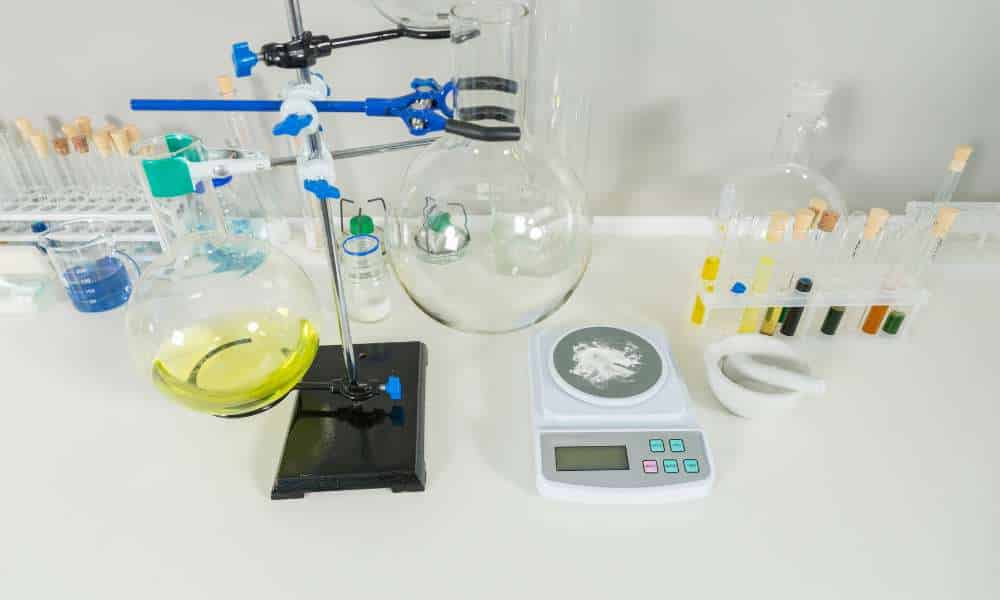When it comes to accurate measurements in both scientific and culinary settings, the type of glassware you use matters significantly. Glassware marked for measuring is designed to ensure precision, consistency, and safety across various tasks. In this article, we’ll explore why different types of glassware are specifically marked for measuring and how they contribute to the success of your experiments, recipes, and projects.
1. Precision in Measurements
Precision in measurements is crucial when working with glassware in laboratories. Accurate measurements ensure that experiments yield reliable and reproducible results, reducing the risk of errors and enhancing overall safety. Using calibrated glassware like pipettes, burettes, and volumetric flasks guarantees that every drop counts, which is essential for maintaining the integrity of your work. Regularly checking and maintaining your glassware’s calibration is key to achieving consistent accuracy. By prioritizing precision, you not only improve the quality of your outcomes but also boost your credibility, making your work more trustworthy and respected in the scientific community.
2. Versatility Across Applications
Different types of glassware are designed for specific purposes, and their markings reflect this versatility. A beaker might have coarse graduations, suitable for approximate measurements, while a volumetric flask offers much finer gradations for precise liquid measurements. By having multiple types of marked glassware, professionals can choose the right tool for the job, whether it’s mixing a chemical solution or measuring ingredients for a recipe.
3. Safety Considerations
When working with glassware, safety should be a top priority. Always inspect glass items for cracks or chips before use, as damaged glassware can easily break and cause injuries. Handle glassware with care, avoiding sudden temperature changes that might cause it to shatter. Use appropriate protective gear, such as gloves and goggles, to prevent cuts and eye injuries. When cleaning, avoid using abrasive materials that can weaken the glass. Store glassware securely, ensuring it won’t fall or get knocked over. By following these safety considerations, you protect yourself and prolong the life of your glassware.
4. Consistency in Repeated Experiments
In both scientific research and cooking, consistency is key. Marked glassware allows for the accurate replication of experiments and recipes. This is especially important in research, where consistent measurements are necessary to validate results. Similarly, in cooking, marked measuring cups and spoons ensure that your recipe turns out the same way every time, whether you’re baking a cake or preparing a delicate sauce.
5. Efficiency in Professional Settings
Time is often of the essence in professional settings, and marked glassware contributes to efficiency. With clearly marked measurements, professionals can quickly and accurately measure liquids or solids without having to double-check or guess. This saves time and reduces the likelihood of errors, allowing professionals to focus on other critical aspects of their work.
6. Ease of Use for All Skill Levels
Marked glassware is designed to be user-friendly, making it accessible for both professionals and beginners. Whether you’re a seasoned chemist or a home cook, the markings on glassware guide you in measuring accurately, ensuring success in your tasks. This ease of use is particularly important in educational settings, where students are learning the importance of precision in scientific experiments.
7. Durability and Longevity
Quality glassware with clear markings is built to last. The durability of these tools ensures that they can withstand repeated use, even in rigorous environments. Over time, the markings remain legible, ensuring that the glassware remains a reliable tool for accurate measurements. Investing in durable, marked glassware can save money in the long run by reducing the need for frequent replacements.
8. Compliance with Standards
In many industries, compliance with standards and regulations is essential. Marked glassware often meets specific standards, ensuring that measurements are accurate and consistent with industry requirements. This compliance is crucial in fields such as pharmaceuticals, food production, and environmental testing, where precise measurements are necessary to meet legal and safety standards.
9. Enhanced Accuracy in Specific Tasks
Certain tasks require more than just a rough estimate. For example, titration in chemistry requires extremely precise measurements to determine the concentration of a solution. Glassware such as burettes, marked with fine graduations, is specifically designed for this purpose. These markings ensure that every drop is accounted for, leading to highly accurate results.
10. Improved Results in Complex Procedures
Complex procedures, whether in a lab or kitchen, often involve multiple steps that require exact measurements. Marked glassware helps ensure that each step is carried out with precision, leading to improved results. Whether you’re synthesizing a new compound or creating a gourmet dish, the accuracy provided by marked glassware is essential for success.
Conclusion
The various types of glassware marked for measuring are indispensable tools in both scientific and culinary fields. They provide the precision, consistency, and safety needed for accurate measurements, leading to successful experiments and delicious recipes. By understanding the importance of using the right type of marked glassware, you can ensure that your work meets the highest standards of accuracy and efficiency.
